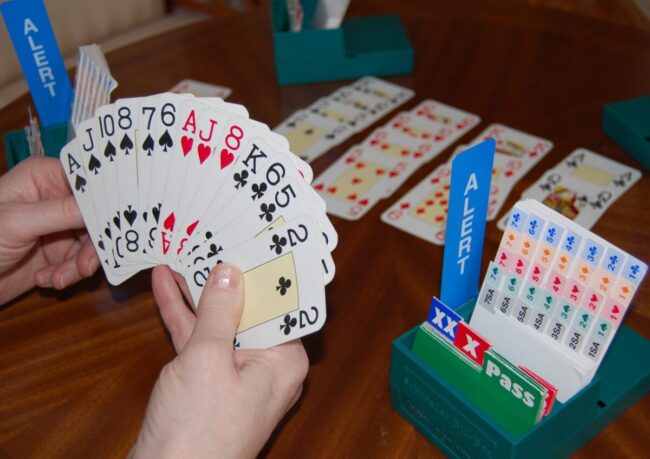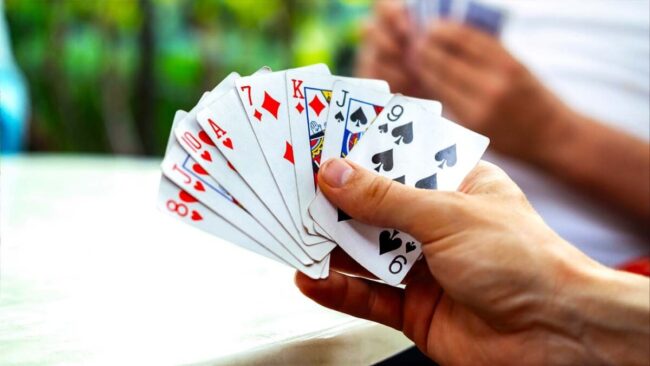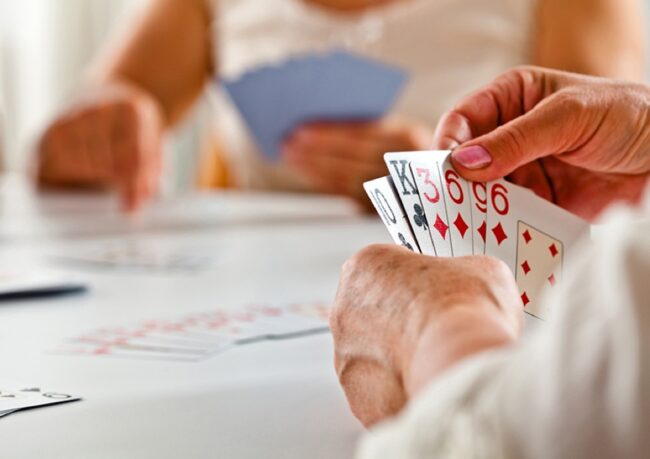You sit down across the table. Deck is sleeved, mind is sharp, maybe there’s even a bit of caffeine still kicking in. You’ve been prepping all week, maybe longer.
But somehow, by round three, things have gone sideways. The board state got messy, a misplay slipped through, and now you’re wondering what exactly went wrong.
It’s not always the matchup or bad draws. Sometimes, success in card games comes down to avoiding habits that quietly sabotage your performance.
Competitive play has a rhythm and a culture of its own, and knowing the meta is only one piece of the puzzle.
Let’s talk about the mistakes that show up over and over again—ones that quietly sink your win rate, tilt your focus, or keep you from leveling up, even if your deck is technically solid.
Overvaluing Memorization Over Decision-Making

Knowing your deck is non-negotiable. You have to know what’s in it, how it curves, what it does in a bad matchup, and how it recovers from a board wipe. But there’s a difference between having a script and actually playing the game.
Some players fall into a pattern of robotic play. They memorize optimal lines and autopilot through turns. That works until something weird happens—an unexpected card, a strange tempo shift, or a bluff they weren’t ready for. And then comes the panic.
I’ve seen more than a few autopilot players at the GTCC fumble when the meta deviated unexpectedly, showing that rote memorization can’t handle curveballs.
In case you didn’t know, GameZone Tablegame Champions Cup (GTCC) is the premier Tongits tournament in the Philippines.
It gathered the top 93 players, who qualified through online rounds, to compete offline for a ₱10 million prize pool.
What helps:
- Practice thinking through your lines, not just rehearsing them.
- Ask yourself: “What’s my opponent trying to set up here?” instead of just focusing on your own sequencing.
- Playtest with unpredictable players or ones who deliberately throw curveballs. You’ll start seeing where your instincts are too rigid.
Competitive games are filled with players who know the lines. What separates top performers is adaptability.
Ignoring Mental Fatigue and Burnout

Tournament environments can be grueling. Even local store events can stretch to several hours of brain-heavy focus. You’d be surprised how many games are lost because someone simply zoned out for one turn.
One bad decision early on can compound into several more. Not because the player doesn’t know better, but because they’re fried. It’s hard to play well when your brain is screaming for a snack, a nap, or a break from the noise.
Common signs of mental fatigue mid-event:
- Forgetting triggers
- Rushing phases
- Reading cards you already know
- Fixating on a single mistake and missing what’s happening now
What helps:
- Bring real food. Protein-heavy snacks and water do more than caffeine and candy bars.
- Between rounds, step outside if you can. Let your brain cool off.
- Don’t analyze every match right away. Save your breakdowns for later—your focus is more valuable in the moment.
Underestimating Opponent Skill Levels
It’s easy to spot: someone sits across from a player they don’t recognize, sees a suboptimal deck sleeve or casual demeanor, and assumes they’re in for an easy win.
That false sense of security leads to laziness. missing potential outs, skipping sideboard checks, or keeping hands that should’ve been tossed.
And then the underdog pulls a clutch combo, or plays cleaner than expected, and now the favorite is scrambling. They start making risky calls or overcorrecting—and they lose.
Why it matters:
Every player sitting across from you is capable of surprising you. That’s part of the fun, but it also means you need to respect every opponent equally.
Better habits:
- Treat every round like it’s top cut. Play tight no matter the name or face across the table.
- Learn to read in-game patterns, not personalities. Just because someone’s soft-spoken doesn’t mean they’re not a shark.
- Stay curious. Ask yourself what they’re building toward, and assume they’ve got an angle you haven’t seen yet.
Getting Too Comfortable With Your Own Meta Bubble

Playgroups have a style. Whether it’s casual tables at the shop or high-level scrims online, people tend to lean on favorite decks, pet strategies, and regional card choices.
Over time, you can start tailoring your deck for that bubble—and that gets dangerous.
When you walk into a bigger event, your usual reads don’t always hold up. Maybe the control decks you teched against are nowhere to be seen.
Maybe there’s a sleeper combo tearing up the bracket that nobody back home was running. Suddenly, all that meta knowledge you relied on feels out of date.
What helps:
- Watch broader events—regionals, online qualifiers, content creators who track data.
- Try building and piloting decks outside your usual style. Even if you don’t love them, you’ll learn how they function.
- Ask players from other areas what’s trending in their scenes. Card game communities are full of people who love talking shop.
Failing to Track Board States and Resources Carefully
Some players are great at theory, but bad at logistics. They know what their win condition is, but forget to count lands, life totals, energy counters, or floating mana. They forget their opponent has three cards in hand, not two. Or they drop a big creature, forgetting there’s a lethal line on board.
In fast games with layered effects, memory slips are common, but they cost real matches.
Simple tools that reduce errors:
- Use dice, counters, or trackers—don’t rely on memory.
- Say your actions out loud. “Tap three mana, play this creature” helps both you and your opponent stay in sync.
- Keep your field tidy. Messy board states lead to missed triggers and confused stack resolutions.
It’s not about being obsessive. It’s about keeping your mind clear so you can focus on decision-making instead of catching up with the game state.
Playing Not to Lose Instead of Playing to Win

You’ve probably seen it, or done it. You’re ahead. Maybe just barely. And now you’re trying not to screw up. So you go defensive. You stop pushing tempo. You hold back a key spell “just in case.” But the longer you delay, the more breathing room you give your opponent.
Before long, you’re cornered. They’ve stabilized. And that tiny edge you had? Gone.
Why it happens:
It feels safer to protect a lead than to extend it. But many games are lost by playing too safe.
Better approach:
- Identify your actual win condition in each matchup. Don’t just stall—ask, “What’s my path to end this cleanly?”
- If you’re ahead, apply pressure. Keep your foot on the gas, especially if your deck favors aggression or tempo.
- Learn from watching pro players. The best ones know exactly when to close and don’t hesitate.
Mismanaging Time in Tournaments
Nothing is more frustrating than drawing a match that could’ve been won. Time management is part of the skillset, especially in formats with control mirrors, recursion-heavy combos, or complex board states.
Sometimes, players take too long thinking through early plays. Or they tank too long on a sideboard decision. By game three, they’re scrambling against the clock.
What helps:
| Issue | Tip |
| Overthinking early turns | Focus on the opening curve and mulligan priorities in advance |
| Slow play in sideboarding | Have a plan written out. Don’t reinvent your board every time |
| In-game delays | Practice chess-clock drills or timed game simulations with friends |
You don’t need to rush. But you do need to stay aware. Efficient play is quiet but deadly.
Getting Too Attached to “Pet Cards”
Every competitive player has them. That one card you love. Maybe it’s a cool alt-art, maybe it won you your first local, or maybe you’re just convinced it “could” work—if only you get the right draw.
The problem? That pet card might be slowing your deck down. Or worse, it might be clogging your hand in key turns.
Card evaluation is brutal sometimes. You have to be honest.
Tips for evaluating pet cards:
- Check your testing logs. How often is the card actually contributing to a win?
- Ask neutral players to playtest your deck and give feedback.
- Try replacing it for 10 matches. If you’re playing cleaner and faster, you’ve got your answer.
Playing While Tilted

It happens. You get mana screwed. Someone topdecks the exact card they need. You misread a situation, or you lose to something fluky. That sting can linger—and suddenly it’s affecting how you play the next round.
Maybe you keep a bad hand out of frustration. Or you go for an overly risky play because you want to “even the score” with the day. Now your emotions are in the driver’s seat.
Tilt control isn’t just about feelings, it’s about performance.
How to reset:
- Between rounds, walk away from the table. Breathe. Hydrate.
- Write down the misplay or bad beat, then physically put the note away. Treat it like a closed file.
- Focus on one decision at a time. The next game has nothing to do with the last one.
The best players know how to lose without spiraling. That’s part of the game too.
Final Thoughts
Competitive card gaming rewards more than deck knowledge. It’s about how you manage time, energy, emotions, and real-world pressure. Skill is built turn by turn, but mistakes can snowball if you’re not watching for them.
Staying sharp takes practice. Not just playtesting or watching metas, but building habits that keep you steady in the chaos of a live match. That’s where consistency lives.
And in competitive play, consistency beats lucky topdecks every time.
